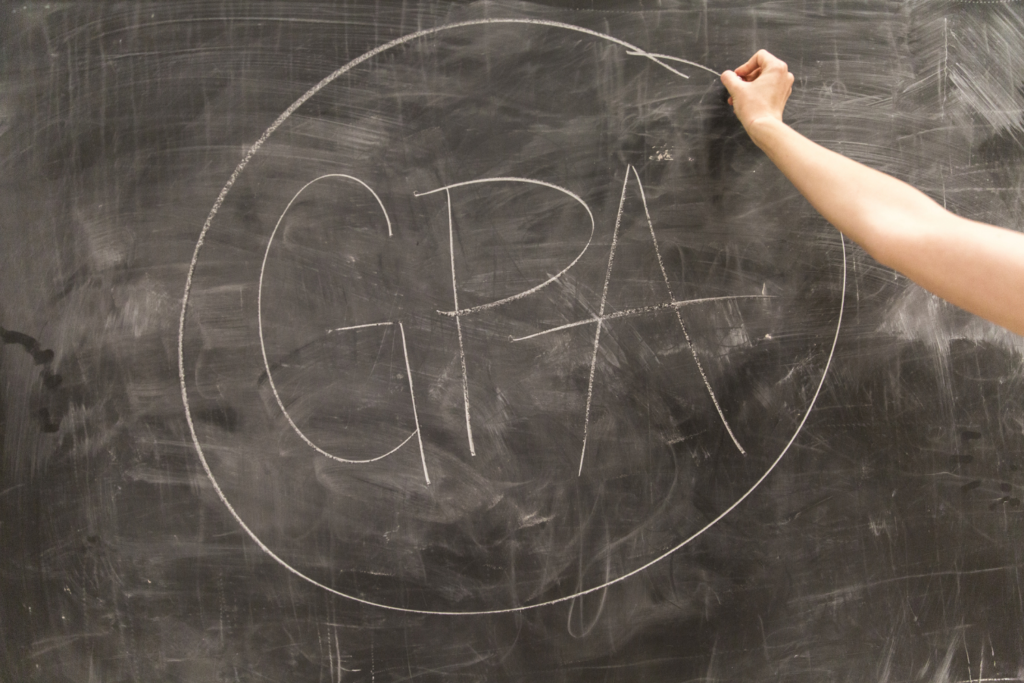College GPA (grade point average) is as important as your diploma. Your GPA is a major factor in whether or not you will be able to get into the college of your choice. It is also important when you apply for scholarships and apply for financial aid.
In this post:
Are you interested in learning how your GPA is calculated?
Your college GPA is a number that represents the average of all grades you received while attending college. It’s an important factor when applying to colleges, scholarships, and financial aid. In order to get into the school of your dreams, it’s important to know what goes into calculating this number.
You will learn about course weighting, quality points, and more so that you can understand exactly what factors go into determining your final grade point average (GPA). Once you are armed with this information, we hope that it will help lead you down the path towards getting accepted at the best schools possible!
How To Calculate Your College GPA
Follow these four steps to calculate your GPA:
Step One
GPA is calculated by dividing the total number of grade points earned by the total number of credit hours attempted.
Step Two
To calculate your GPA, you will need to first determine the number of quality points earned for each letter grade.
Step Three
Multiply the number of quality points earned for each letter grade by the credit hours attempted for that class.
Step Four
Add up all of the results from Step Three and divide by the total number of credit hours attempted. This is your GPA!
After following these steps in calculating your college GPA, it’s noteworthy that you understand those numerics are affected by a few more factors. If you don’t want to do the mathematics involved, here is a GPA calculator.
Course Weighting
Course weighting is when a college assigns a certain number of points to a course, based on the level of difficulty. This can impact your GPA in two ways:
- The higher the number of points assigned to a course, the more it will affect your GPA if you earn a lower grade.
- Colleges often require students to take classes that are worth more points, in order to graduate. This means that even if you earn a high GPA in classes that are not worth many points, it may still be lower than someone who took tougher courses and earned the same grades.
Quality Pointing
Colleges also use a system called quality points. Quality points are simply the points assigned to a letter grade. So, if a course is worth four quality points and you earn an A in that class, then you would earn 16 quality points (four times four).
- A = four quality points
- B = three quality points
- C = two quality points
- D = one quality point
- F = no quality points
There are a few things you can do to keep track of your college GPA and make sure that it is as high as possible.
- Be sure to check with your registrar or academic advisor on how your school calculates your GPA.
- Take challenging classes but be realistic about how well you will do in them.
- Keep track of the number of quality points you earn for each letter grade. This will help you understand how much a certain grade is worth in terms of your GPA.
- Use a GPA calculator to help you determine your current GPA and what grades you need to get to reach your desired goal.
FAQs about College GPA’s
Q: How will transferring colleges affect my GPA?
A: When you transfer to a new college, your previous grades will be averaged with the grades earned at your new school. This calculation will use all of the credit hours attempted and grades earned at both schools.
Q: Can I still get into college if I have a low GPA?
A: Many colleges use a holistic approach when reviewing applications. This means that they will look at your entire application, not just your GPA. So, even if your GPA is on the lower side, you may still have a chance of getting into your dream school!
Q: I’m retaking a class that I failed. How will this affect my GPA?
A: If you retake a class and earn a higher grade, the new grade will replace the old one in your GPA calculation. However, if you earn a lower grade than the original, both grades will be averaged together when calculating your GPA.
Final Thoughts
Your GPA is a major factor in your success in college and beyond. While you may think that your diploma is the most important document you will receive, it’s actually your transcript that carries the most weight. This is especially true when you are applying for scholarships and financial aid. Make sure to give yourself the best chance of getting into your dream school and receiving the money you need to pay for school by keeping your GPA as high as possible.
I hope you find this article helpful in calculating your college GPA. If you have any questions, please don’t hesitate to ask!





